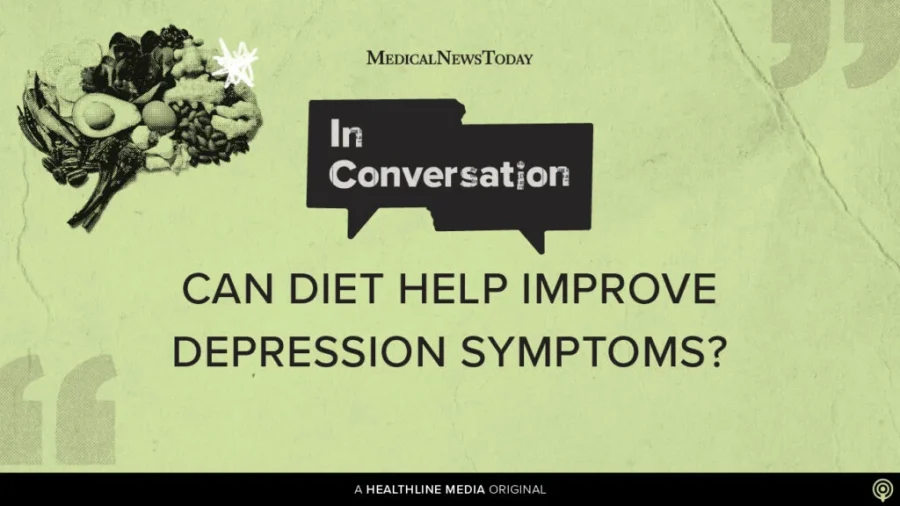Many people around the world live with depression, which can have a severe impact on their quality of life. While approaches like therapy and medication can help some people manage their symptoms, for others they are not that successful. Could diet succeed where other approaches fail, and if so, why? Design by Andrew Nguyen. Depression is such a common mental health disorder that it affects around 5%Trusted Source of all adults around the world, according to World Health Organization (WHO) estimates.
There are different types of depression — such as major depressive disorder and persistent depressive disorder lasting for at least 2 years. The causes of depression are often manifoldTrusted Source, with both genetic and situational risk factors involved — specific stressors or conditions, acting as triggers, leading to recurrent major depressive episodes.
And while targeted therapy and medication help many overcome or manage their symptoms of depression, these interventions do not work equally for everyone.
This has led researchers to cast their nets even wider in looking for all the factors that may contribute to depression, as well as for novel approaches for depression treatments and symptom management.
Recently, diet has come to the forefront of medical research, with experts debating the pros and cons of using dietary interventions to treat or even prevent different medical conditions.
Over the past few years, several studies have suggested that opting for healthier diets rich in vegetables, fruit, and whole grains may help improve depression symptoms.
For instance, one study from April 2022 from the University of Technology Sydney found that men aged 18–25 years experienced an improvement in depression symptoms after switching to a Mediterranean diet. But it remains unclear what mediates the link between diet quality and mental health.
In December 2022, two studies published in Nature Communications looked at the link between gut microbiota and depression symptoms. One of the studies found that 13 types of bacteria, in particular, are associated with depression symptoms.
It may be the way in which these bacteria lead to the activation of different signals in the brain that may explain the link between the bacterial makeup of the gut and depression symptoms, researchers hypothesize.










